
In January of 1927, Hans Wilsdorf made perhaps the boldest claim one could make in the watchmaking industry. In front of gathered watch retailers he proclaimed "Gentlemen, we make the best wristwatch in the world." And even if there was a sceptic amongst the crowd then in 1927, the statement would undoubtedly turn out to be prophetic, because today, Rolex still sits at the top of the industry, both in terms of profitability and market share.
So how did they become the brand that wears the crown? In an industry that seems to be pushing the boundaries of ostentatiousness in every way, the key to success it would seem, is consistency. For nearly a full century, Rolex has steadily improved upon its creations with a perpetual focus on innovation.
Its foundation, however, was based, on three key areas - precision, water resistance and the ability to self-wind.
IN THE WORDS OF HANS WILSDORF
Long before the first Oyster case ever touched a drop of water, Hans Wilsdorf had prioritised precision. In 1910 the sentiment was that no wristwatch would ever be able to match the precision of a pocket watch as they were too small. A smaller form would mean smaller movements and it would also indicate that these timekeepers would simply be too delicate to serve as a daily tool.
Unbeknownst to most, Hans Wilsdorf had already solved the problem of precision, but his challenge was to convince the rest of the world that he had.
This story is from the Legacy 2024 edition of World of Watches.
Start your 7-day Magzter GOLD free trial to access thousands of curated premium stories, and 9,000+ magazines and newspapers.
Already a subscriber ? Sign In
This story is from the Legacy 2024 edition of World of Watches.
Start your 7-day Magzter GOLD free trial to access thousands of curated premium stories, and 9,000+ magazines and newspapers.
Already a subscriber? Sign In
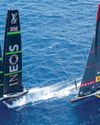
RACE AGAINST TIME
Endurance events push the human limit to the very edge, and every second of this gruelling journey is accompanied by the ticking hands of a trusted timekeeper.
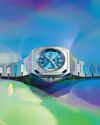
RAINBOWS IN THE SKY
Bell & Ross continues experimenting with design, this time with a new ever-changing iridescent dial on the sporty BR-X5.
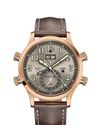
OUT OF OFFICE
We take a closer look at how Patek Philippe tackles the art of travel even without having a single GMT complication in their collection.

BUOYANT HEAVYWEIGHTS
The ubiquitous use of titanium and carbon fibre does not satisfy a growing number of watch lovers; the indisputable rise of quiet design vexes them. The recent release of hefty and heavy timepieces, especially in the dive watch segment, proves that some just like it big.

UNDER ONE ROOF
The recent IAMWATCH in Singapore organised by The Hour Glass saw collectors, watchmakers and industry luminaries congregate for the grandest watch party of the year.

TOWARDS ETERNITY
Longtime IWC Associate Director of Research & Development Stefan Ihnen tells us what it takes to keep ticking for more than 20 years in the watchmaking innovation space.

EXPANSIVE REACH
The Rolex Perpetual Planet Initiative allows this watchmaking company to explore nearly every natural environment on Earth.
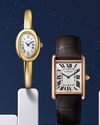
TIME SHAPES UP
Rough winds do shake up watchmaking and this is when we least expect new directions. The debut of just one collection has changed the math and made many question the wisdom of banking so overwhelmingly on round watches. The editors of WOW debate the issue.
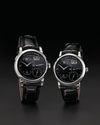
THE BIRTH OF ASYMMETRY
This year, Lange celebrates the 30th anniversary of the LANGE 1 and with it, 30 years since the re-birth of A. Lange & Söhne.
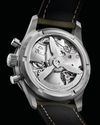
TOTAL COMMAND
Blancpain relives the golden age of air travel with two new Air Command flyback chronographs.